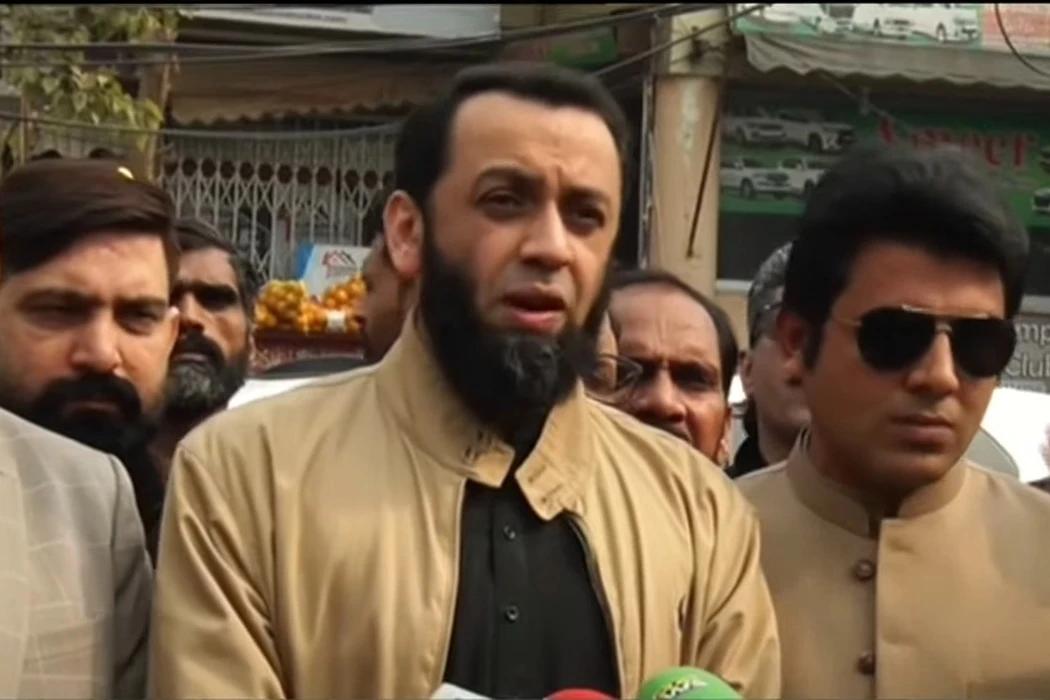The nine-member larger bench, headed by Chief Justice of Pakistan (CJP) Umar Ata Bandial commenced the hearing.


Islamabad: The Supreme Court has Friday adjourned the hearing of the suo motu notice--taken by Chief Justice of Pakistan-- till Monday (February 27), over an apparent delay in the announcement of elections of Punjab and Khyber Pakhtunkhwa (KP).
The nine-member bench, headed by Chief Justice of Pakistan (CJP) Umar Ata Bandial commenced the hearing today shortly after 11:30 am.
The bench includes Justice Ijazul Ahsan, Justice Syed Mansoor Ali Shah, Justice Munib Akhtar, Justice Yahya Afridi, Justice Sayyed Mazahar Ali Akbar Naqvi, Justice Jamal Khan Mandokhail, Justice Muhammad Ali Mazhar and Justice Athar Minallah.
During today's hearing, Farooq H Naek, a lawyer representing the Pakistan Peoples Party (PPP), objected to the presence of Justice Sayyed Mazahar Ali Akbar Naqvi and Justice Ijazul Ahsan on the bench.
Similar objections were raised by coalition government parties, including Jamiat Ulema-e-Islam (JUI-F) and Pakistan Muslim League- Nawaz (PML-N), as well as the Pakistan Bar Council (PBC).
The aim of today's hearing, as clarified by Chief Justice of Pakistan (CJP) Umar Ata Bandial, was to ensure the attendance of all stakeholders, with the assurance that everyone would be given a chance to speak on Monday (February 27).
On the first hearing of the matter held in Islamabad on Thursday, the court issued notices to the Election Commission of Pakistan, the Attorney General, Governors, all the leading political parties and others to submit their arguments at the next hearing.
Yesterday's hearing
On Thursday, a nine-member bench of the Supreme Court adjourned the suo motu hearing regarding the delay in the announcement of a date for elections in provincial assemblies.
The nine judges gathered to review the suo motu notice on Punjab and KP Polls, in a bid to determine who has the constitutional responsibility and authority to announce the date for polls to a provincial assembly—as it was dissolved in different situations.
At the outset of the hearing, the court observed that clarification is needed regarding the authority responsible for determining the date of elections after the assembly's dissolution.
Under Article 224/2, it was noted that the Punjab and Khyber Pakhtunkhwa Assemblies were dissolved on January 14 and 17, respectively, and that elections must be held within 90 days of the assembly dissolution.
Suo motu notice
On February 22, the Chief Justice of Pakistan took notice of a delay in the elections in the two provinces where the Pakistan Tehreek-e-Insaf (PTI) dissolved the legislative assemblies in mid-January.
The top judge took notice on the note received from the Registrar office and constituted a nine-member bench for the hearing.
“It has been brought to my knowledge that it is over more than a month that provincial assemblies of Punjab and Khyber Pakhtunkhwa were dissolved,” observed Chief Justice Bandial.
The PTI leaders welcomed the suo motu notice taken by the CJP and said that it was a good step because holding elections in the Punjab and KPK was constitutional demand.
“I hope that the top court will timely decide this matter,” said PTI leader Fawad Chaudhary. Responding to question whether the PTI would accept whatever the decision was announced by the Supreme Court, Fawad Chaudhary said that they would accept the decision because there was no other choice.
He said, “There was a big constitutional crisis in the country,”.
Senior lawyer Babar Awan said that the suo motu is a good step to deal with the matter.
“If federation refuses to provide resources then it is nothing but problematic. But luckily the matter has now gone to the Supreme Court and now there will be a binding judgment,” said Babar Awan while commenting on the suo motu notice.
He termed it a “good development” because this matter now would be settled.

The dismaying response to a new Alex Pretti video
- 14 hours ago
Mega IPOs in focus after Musk's SpaceX acquires xAI
- 3 hours ago
PMD forecasts cold, dry weather in most parts of country
- 6 hours ago
Pakistan, Uzbekistan target $2bn trade in 3 years: Haroon
- 6 hours ago
Names of PTI founder Imran Khan, ex-FM Shah Mahmood Qureshi surface in Epstein files
- 5 hours ago
Kazakhstan President arrives in Pakistan on two-day visit
- 3 hours ago
Pakistan, Azerbaijan pledge to strengthen defence ties
- 7 hours ago
Trump warns of ‘bad things’ if no deal reached with Iran
- 5 hours ago

SMEDA’s global certification initiative continues apace
- an hour ago
Two workers arrested on suspicion of sabotaging German warships: report
- an hour ago

Trump looks ready to bomb Iran again. Why?
- 14 hours ago
Rabi Pirzada harassed in Lahore's Defence area
- 3 hours ago






